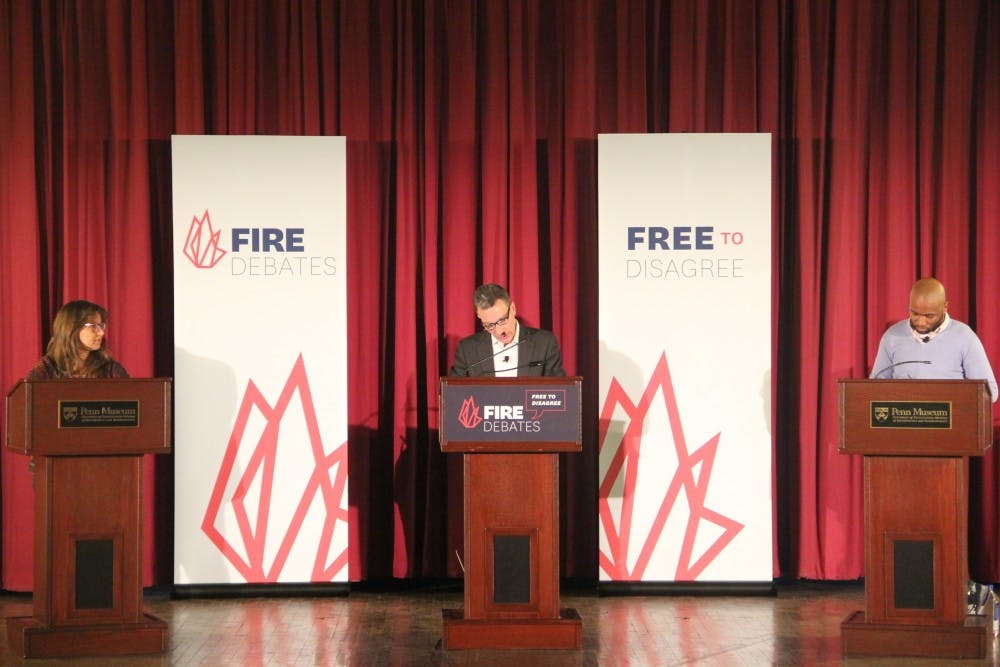Hashtags on social media have evolved into an important social tool for activist movements of all kinds. But how effective are they in bringing about change?
The Foundation for Individual Rights in Education and The Daily Pennsylvanian sponsored “Hashtag Activism,” a debate centered around the usefulness of activism through social media. The motion of the debate was “Hashtag activism garners attention but is not enough for outcomes.”
Arguing against the motion was educator and community organizer Zellie Imani. Arguing for the motion was techno-sociologist and assistant professor at the University of North Carolina at Chapel Hill Zeynep Tufecki. Jeffrey Rosen, the president and CEO of the National Constitution Center, served as the debate’s moderator. The debate was the third installment in the FIRE debate series that is meant to spark conversations and encourage free speech among college students.
The debaters discussed the effectiveness of movements such as Black Lives Matter, Occupy Wall Street, Kony 2012, and they even compared these movements to the Civil Rights Movement. The two speakers agreed that social media brought attention to issues, but disagreed when it came to the question of the impact that hashtags could have.
Imani, a cofounder of Millennial Activists United and creator of hashtags such as hashtag #NJShutItDown and hashtag #NotJustSAE, argued that social media has helped create change in activist movements because it allows marginalized people to join the conversation and effectively further their interests.
“Social media became our CNN. Social media became our mimeograph. We became the journalists, the advocates and the leaders that we were looking for,” Imani said. We were disenfranchised, we were the marginalized, the people that were sitting in the margins of the margins, the voiceless ... What social media, what Twitter, did was give the voiceless a voice.”
On the other hand, Tufecki, a contributing opinion writer for The New York Times, argued that movements that start online are unable to create lasting change after going viral on social media platforms. Hashtags allow for people to gather, but do not prepare leaders for future challenges.
“Digitally fueled movements of today are often limping because they’re so focused on their powerful change of conversation,” Tufecki said. “They’re not thinking, ‘How do we develop the capacities, so that we can be that powerful?’”
An informal show of hands at the end showed a narrow margin of attendees against the original motion. Several raised their hands to say the debate changed their mind from before the event.
The event attracted attention from students across the area, including Nyazia Bey, a high school senior who has been admitted to Penn.
“My initial stance was against the motion — I thought social media was enough to create an outcome,” Bey said. “I kind of got swayed throughout the debate to leaning more on the pro side. I feel like social media and hashtag activism is really powerful in the way that ... the consumer becomes the creator, but where I saw it fall short was with the actual ground work.”
RELATED:









